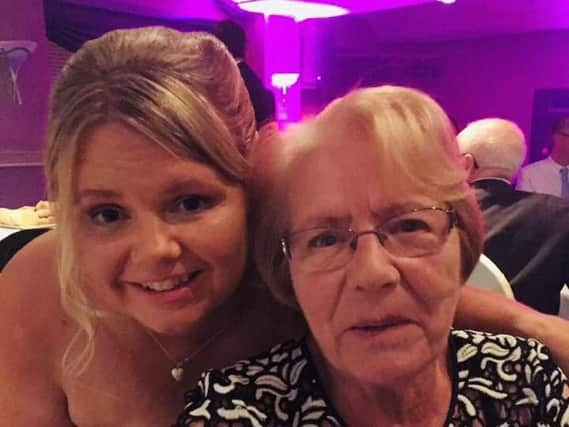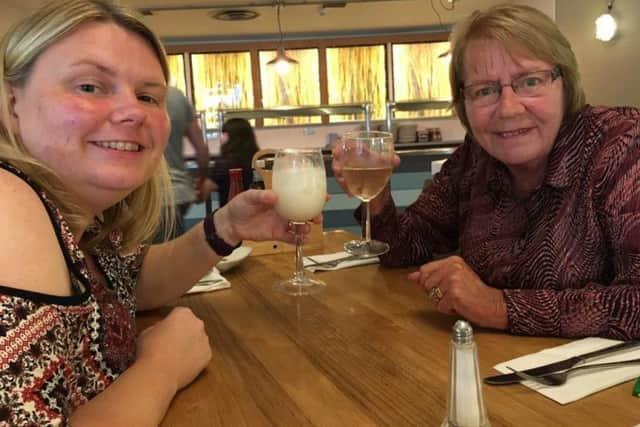How a Coppull woman with tonsil cancer made a swift recovery thanks to robotic surgery at Royal Blackburn Teaching Hospital


Audrey Downs, of Coppull, only discovered she had the cancer following a routine dental appointment last October but as it was in its early stages, surgeons were able to remove it using transoral robotic surgery at Royal Blackburn Teaching Hospital.
Compared with traditional surgery, robot-assisted surgery reduces disfigurement, discomfort and pain after the procedure. It also means the surgeon can make smaller incisions and still get a close-up view of hard-to-reach places because the robot includes a 3D camera.
Advertisement
Hide AdAdvertisement
Hide AdThe 77-year-old mother-of-one, who has five step grandchildren, says: “I was diagnosed by my dentist as he noticed something at the top of my mouth and so he referred me to the hospital. I had no signs of anything, but as I go to the dentist every three months, he was able to spot it very early on.


“I went to Royal Preston Hospital a few weeks later, in November and consultants confirmed I had tonsil cancer. They discussed radiotherapy and my daughter asked if there was anything else that could be done.
“We were told specialist head and neck surgeon Naseem Ghazali at Royal Blackburn Teaching Hospital performs robotic surgery which allows her to make small incisions.
“I went to see her and had the operation in January. Ms Ghazali took a tonsil out and some of the palette and she got all the cancer out. I was eating and drinking the next day which was amazing. I just had to eat soft foods for two weeks, but after that I could eat what I wanted.
Advertisement
Hide AdAdvertisement
Hide Ad“I have been back since and there have not been any signs of it coming back. I have to go back every six weeks for a check up.
“Ms Ghazali is a miracle worker. I doubt if I had radiotherapy, I would be able to eat much now and I would still be receiving treatment, going every 12 weeks. I would certainly recommend this robotic surgery to anybody.”
Audrey’s daughter, Claire Scott, says: “My mother was initially offered radiotherapy, which would have had life-changing and lifelong side effects. But after searching for alternatives, she was fortunate enough to be offered the option of transoral robotic surgery.
“The robot is massively benefitting people locally, although recent restrictions implemented due to lack of funding have limited the number of people this surgery can help. In the future, I hope this surgery can benefit head and neck cancer patients nationwide.”
Advertisement
Hide AdAdvertisement
Hide AdAround 12,000 new cases of head and neck cancers are diagnosed in the UK each year. While surgery for cancer caught early can be relatively minor, it can also involve more major procedures that require skin grafts and reconstructive surgery after removing the cancer.
“But, with a price-tag of £1.5m, not every hospital can afford a robot.
“I’m very lucky to work at Royal Blackburn Teaching Hospital, where the Trust invested in the state-of-art robot.
“It will enable me to continue fulfilling our team’s aim of providing head and neck cancer treatments for the people of Lancashire.”